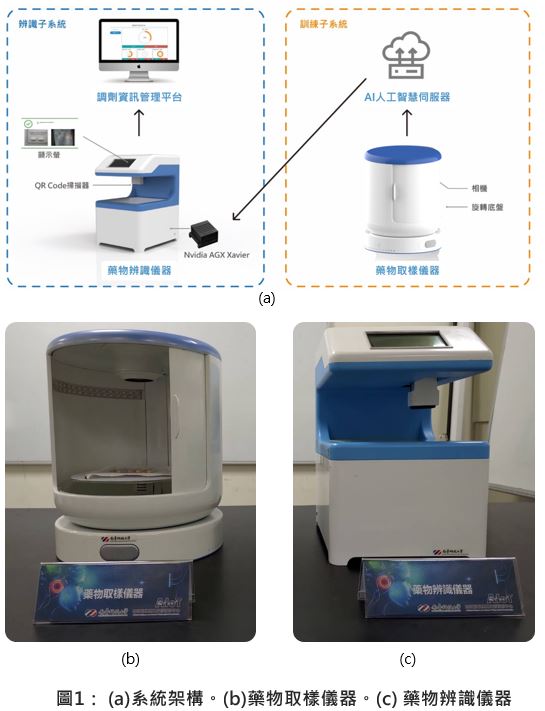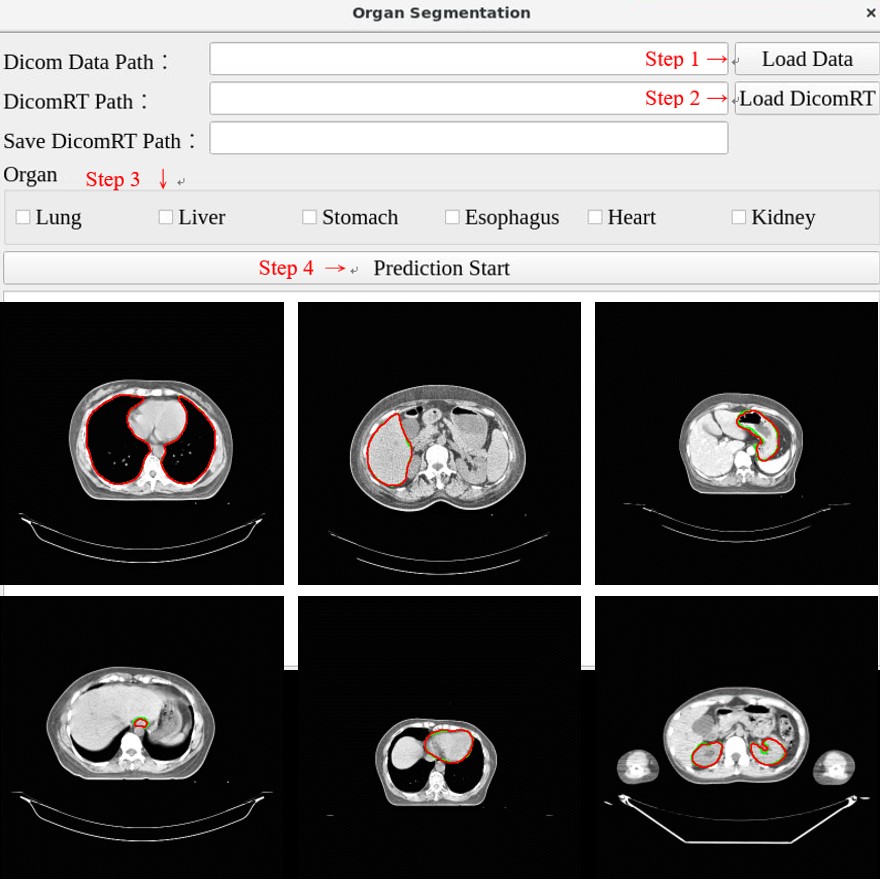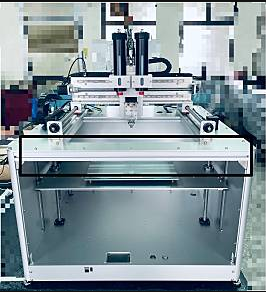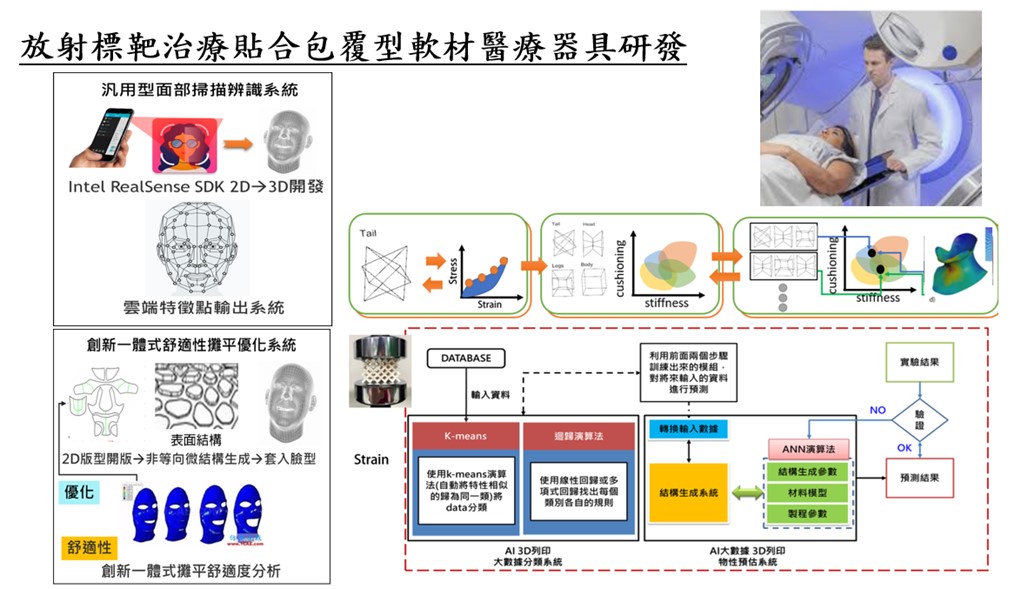:::
- Home
- /
- Year
- /
- 2021
- /
- Interdisciplinary Area
- /
- 智能精準放射治療系統研發
| Technical Name | 智能精準放射治療系統研發 | ||
|---|---|---|---|
| Project Operator | National Chung Cheng University | ||
| Project Host | 劉偉名 | ||
| Summary | This technology uses deep learning technology to establish six automatic organ segmentation models for six organsa graphical user interface for doctors. The data is exchanged with the existing radiotherapy planning system by standard formats. Analysis of the dosimetric parameters of the 3D printed customized bolus demonstrated that it is provided good dose escalationgood contact with the irregular surface. |
||
| Scientific Breakthrough | In order not to be limited by the hardware, the deep learning models used in this technology has undergone a huge number of calculations on GPU cloud of National Center for High-performance Computingmany modules-combination trialsrevisions. The current segmentation accuracy (DSC score) is: lung : 99.3, liver: 95.4, heart: 93.9, stomach: 88.9, esophagus: 80.8, kidney: 93.5, while the state-of-the-art performance are: lung: 99.3, liver: 94.6, heart: 93.9, stomach: 89.2, esophagus: 81.6, kidney: 93.8. |
||
| Industrial Applicability | Currently doctors need to manually draw the borders of organs around the tumor on the patient’s CT images before the radiotherapy, so that the treatment planning software can accurately calculate the required irradiation anglethe corresponding radiation dose. If the angle is slightly deviated, it will cause unnecessary radiation damage to the healthy tissues. The computer automatic segmentation model of this system has fast calculation speedfixed output quality. The fine-tuning can be done within thirty minutes, which saves a lot of timeenergy for the physician in comparison. |
||
| Matching Needs | 天使投資人、策略合作夥伴 |
||
| Keyword | Artificial Intelligence precision medicine radiation therapy system 3D print customized bolus | ||
- sherlockchen@alum.ccu.edu.tw
other people also saw







